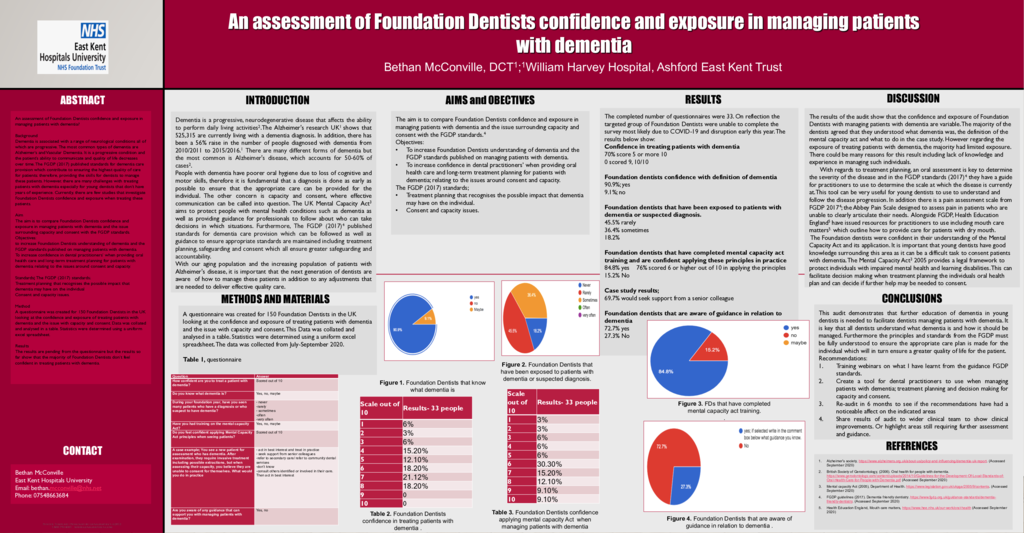Background: Dementia is associated with a range of neurological conditions all of which are progressive. The most common types of dementia are Alzheimer’s and vascular dementia. It is a progressive condition and the patient’s ability to communicate and quality of life decreases over time. The FGDP (2017) published standards for dementia care provision which contribute to ensuring the highest quality of care for patients; therefore, providing the skills for dentists to manage these patients. However, there are many challenges with treating patients with dementia, especially for young dentists that don’t have years of experience. Currently, there are few studies that investigate Foundation Dentists confidence and exposure when treating these patients. Aim: The aim is to compare Foundation Dentists confidence and exposure in managing patients with dementia and the issue surrounding capacity and consent with the FGDP standards. Objectives: - to increase Foundation Dentists understanding of dementia and the FGDP standards published on managing patients with dementia. - To increase confidence in dental practitioners when providing oral health care and long-term treatment planning for patients with dementia; relating to the issues around consent and capacity. Standards; The FGDP (2017) standards; 1. Treatment planning that recognises the possible impact that dementia may have on the individual 2. Consent and capacity issues. Method: A questionnaire was created for 150 Foundation Dentists in the UK looking at the confidence and exposure of treating patients with dementia and the issue with capacity and consent. Data was collated and analysed in a table. Statistics were determined using a uniform excel spreadsheet. Results: The results are pending from the questionnaire but the results so far show that the majority of Foundation Dentists don’t feel confident in treating patients with dementia.
- 36 views



